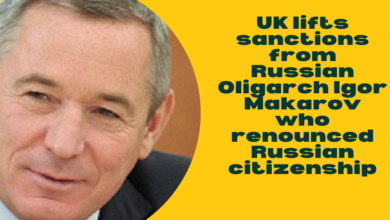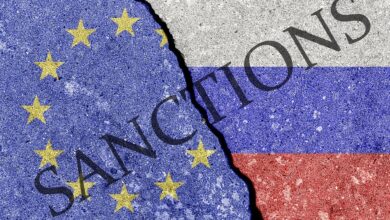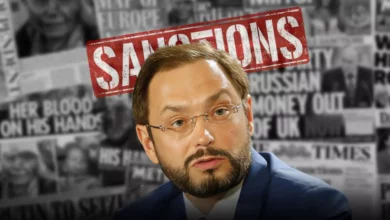Oligarch Eugene Shvidler lost Court of Appeal bids 2024
Both Eugene Shvidler, a businessman with ties to Roman Abramovich, and another oligarch Sergei Naumenko, who faced sanctions following the invasion of Ukraine, have had their appeals dismissed by the Court of Appeal.
Eugene Shvidler, originally from the former Soviet Union and later relocating to the US as a stateless refugee in 1989, was sanctioned by the Foreign Office under regulations from 2019 due to his connections with Roman Abramovich and a steel mining company operating in Russia.
Challenging the decision made in March 2022, the billionaire Eugene Shvidler pursued a legal challenge in an attempt to overturn the sanctions. His case, the first of its kind, was taken up by the High Court.
Shvidler, holding dual UK and US nationality, sought a declaration from the court asserting that his designation under post-Brexit regulations on sanctions was unlawful. Additionally, he pursued an order to nullify the designation.
Eugene Shvidler And Sergei Naumenko Appeal
Following the dismissal of his bid at the High Court, Eugene Shvidler, along with Russian businessman Sergei Naumenko, proceeded to appeal their cases at the Court of Appeal.
Mr. Naumenko had initiated his own legal action concerning the detention of the £38 million custom-built superyacht The Phi, which is currently moored in Canary Wharf, east London.
In March 2022, the then-Transport Secretary Grant Shapps shared a photo of himself with the yacht on social media platform X, formerly known as Twitter, alongside a TikTok video, revealing its detention.
In a ruling on Tuesday, both Mr. Naumenko and the companies he represented, as well as Eugene Shvidler, lost their appeals.
Shvidler’s legal team contended that the sanctions imposed on him and his family were “manifestly disproportionate,” leading to two of his children being compelled to leave their schools in the UK following his designation.
In the 55-page judgment, Lord Justice Singh acknowledged the severity and indefinite nature of such sanctions. However, he emphasized that the severity and open-endedness were often necessary for sanctions to be impactful.
Lord Justice Singh emphasized the necessity for those falling under the designation criteria of the 2019 Regulations to bear a significant consequence if sanctions are to be efficacious. He underscored Russia’s grave breach of international law and the imperative to halt the invasion of Ukraine as the driving forces behind this.
Regarding Mr. Naumenko’s appeal, Lord Justice Singh, alongside Sir Geoffrey Vos and Lady Justice Whipple, noted that the Foreign Office had not categorized the businessman as directly involved in activities against Ukraine or as benefiting from supporting the Russian authorities.
However, he added: “Considering the probable direct and indirect connections between Mr. Naumenko’s wealth, economic endeavors, and the Russian state, it is logical to surmise that he belongs to the category of individuals whom sanctions could impact significantly, as intended by Parliament through the ‘connected with Russia’ powers, thereby weakening their implicit support for the regime.”








